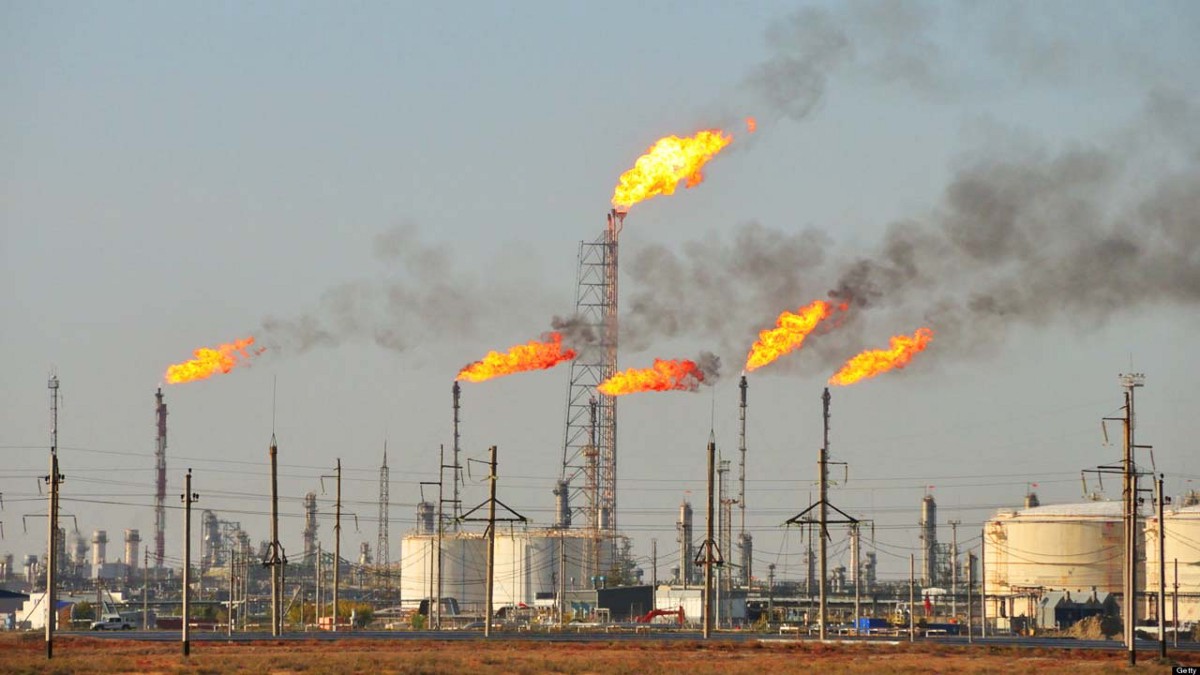According to data released on Sunday by the Nigerian Oil Spill Monitor, an arm of the Nigerian Oil Spill Detection and Response Agency, NOSDRA, Nigeria lost N891 billion to gas flaring in 18 months.
According to the data, the country lost N707 billion in 2021 and N184 billion in the first half of 2022, totaling N891 billion.
According to the NOSDRA report, the country’s oil and gas companies flared a total of 126 billion standard cubic feet, SCF, of gas in the first half of 2022, resulting in a loss of $441.2 million (about N183.54 billion) in the six-month period.
In 2021, however, approximately 23,862.271 barrels of oil (3,770,238.864 litres/119 tanker trucks) were spilled.
Brent International was sold for an average of $71 per barrel in 2021, resulting in a $1.7 million revenue loss for the year.
The estimated volume of gas flared in the first half of 2022 to carbon dioxide, CO2 emissions of 6.7 million tonnes in oil-producing areas, 4.56 percent more than the 120.5 billion SCF of gas flared in the second half of 2021, and capable of generating 12,600 gigatonnes of electricity.
On the other hand, the amount of gas flared in the first six months of 2021 was enough to generate 14,000 gigatonnes of electricity and 7.4 million tonnes of CO2.
The agency revealed that while companies operating in the offshore oilfields flared 62.2 billion SCF of gas in the first six months of 2022, companies operating onshore flared 63.9 billion SCF of gas, valued at $223.6 million.
There were approximately 382 publicly available oil spill records in 2021. A total of 33 of the 382 occurrences were not visited by a joint investigation team, and 122 of these had no estimated quantity of oil spilled provided by the companies involved.
According to the report, two major oil spills occurred in 2021, with over 250 barrels spilled into inland waters and over 2,500 barrels spilled on land, swamp, shoreline, and open sea.
In 2021, there were seven medium oil spill incidents, with 25-250 barrels spilled into inland waters or 250-2,500 barrels spilled on land, swamp, shoreline, and open sea.
Minor oil spills accounted for approximately 239 cases, with up to 25 barrels spilled into inland waters or 250 barrels spilled on land, swamp, shoreline, and open sea.
According to the report, approximately 174 of the spills were under 10 barrels in size, while 128 oil spills could not be classified.
Gas is burned off or flared as part of the oil production process, according to the NOSDRA report.
However, in recent years, the Federal Government has led campaigns for gas monetisation as opposed to flaring.
Despite efforts to reduce gas flaring, NOSDRA lamented that it had been flared in Nigeria since the 1950s, releasing carbon dioxide and other gaseous substances into the atmosphere and causing environmental and health problems in oil-producing areas.
Prof. Olalekan Olafuyi, Chairman of the Society of Petroleum Engineers, SPE Nigeria Council, stated in an interview that the Federal Government would increase gas flaring penalties as Nigeria raced to meet the United Nations net zero goal by 2060.
He did not say how much the flare rates would be raised, but he did say that the Council was working closely with the Nigerian Upstream Petroleum Regulatory Commission, or NUPRC.
“We are collaborating closely with the Nigerian Upstream Petroleum Regulatory Commission, and I can state categorically that companies that flare gas will now pay more than those that use it.” So it will be in their best interests to start thinking about ways to use their gas instead of flaring it,” he said.
Companies that produce more than 10,000bpd are currently fined $2 per 1000 Standard scf of gas flared. Companies producing less than 10,000bpd pay $0.5 per 1000bpd, while companies producing more than 10,000bpd pay $0.5 per 1000scf of gas flared.
Oil companies flared natural gas worth $1.24 billion in 2020 alone.
Victor Bandele, Deputy Managing Director, Deep Water, TotalEnergies EP Nigeria, told The PUNCH that Nigeria benefited from turning all flared gas into commercial use.
In June, President Muhammadu Buhari had approved the reorganization of HYPREP’s operations and ordered a full audit of the organization’s books from its inception to the present. HYPREP is responsible for cleaning up oil spills in the Niger Delta.









